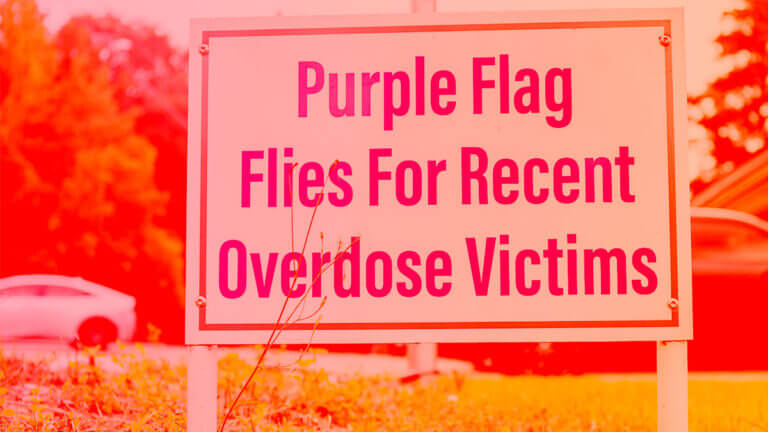
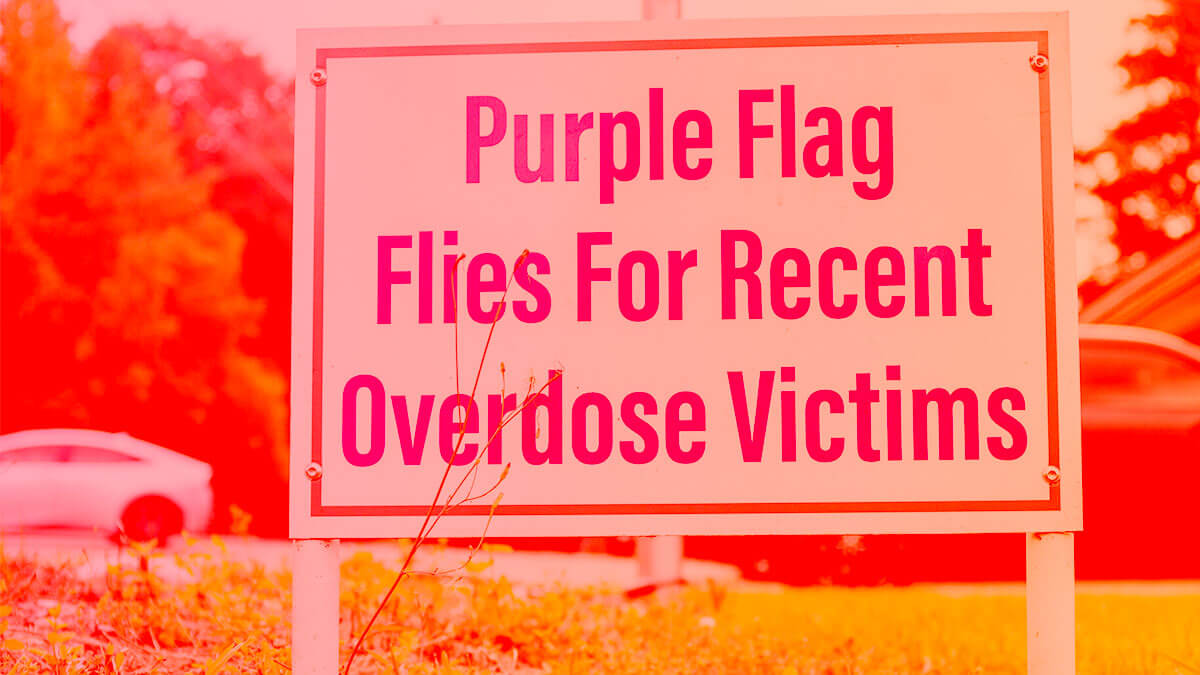
This story is part two of our series, The Black Box: Inside Mississippi’s opioid settlement spending. Explore the series.
For the past three years, 147 towns, cities and counties have controlled millions of Mississippi opioid settlement dollars meant to address the overdose epidemic.
However, elected officials have been much more likely to spend the money on routine government expenses than on addressing addiction, a Mississippi Today investigation found. And they are doing so legally: Attorney General Lynn Fitch allowed them to spend these dollars on any public purpose rather than addressing the public health catastrophe that’s killed over 1,300 Mississippians since the state received its first lawsuit check.
Mississippi Today filed public records requests with all cities and counties that have received National Opioid Settlement dollars to learn how much money each has received and spent. Of the over $15.5 million local governments have received, they’ve used roughly $6.4 million as of this summer. About $4.3 million of that has been designated for routine government expenses.
Most of Mississippi’s opioid settlement money is controlled by the state Legislature, which tasked an advisory committee with recommending how lawmakers spend the state’s share to treat and prevent opioid addiction. But applications for those dollars only went out last month, and that money is unlikely to be distributed until the Legislature enacts a budget in July 2026.
Until then, the only Mississippi lawsuit money that can likely address addiction is funds that went to the 147 local governments, which are expected to net around $48 million more in settlements over the next 15 years.
Melody Worsham, a peer support specialist for the Mississippi Recovery Advocacy Project, has worked to address the harms of the addiction epidemic for over a decade. She said she sees missing resources in the state’s effort to prevent overdose deaths every day, and she hopes the settlement money will eventually go to groups such as hers that build on the knowledge of people who’ve experienced addiction.
She said that she would be willing to fill potholes herself after Mississippi Today told her the amount of local government opioid lawsuit money being used for city and county general expenses.
“I’ve got people to volunteer to do the potholes if they stop spending the opioid money for that,” she said. “I’m disgusted. I’m disillusioned. I’m actually kind of speechless, I really am.”
Jackson County on the Gulf Coast and the city of Jackson are two of the five local governments that have received the most money in the state to date. Neither are using their dollars to address addiction, records responses show.
Jackson County, the county with the most suspected overdose deaths last year, is using over $1 million for unspecified government expenses. The city of Jackson has spent some of the roughly $547,000 it reported receiving for fiber optic cable installation, office moving expenses and a shelving system.
Both Jackson County Board of Supervisors President Barry Cumbest and Jackson Mayor John Horhn did not respond to emails asking whether their governments have made the best use of these lawsuit dollars. Records show Horhn took office after the city of Jackson spent some of its settlement money for general purposes.
Mississippi Today could only account for about $945,000 across all 147 localities that has been spent to address and prevent addiction. Most of that went to fund mental health emergency services and drug intervention courts, programs that direct some people struggling with substance use disorder away from jails or prisons and toward treatment programs.
Officials for the dozens of governments depositing opioid settlement checks into general expense accounts told Mississippi Today that once the money goes into those accounts, it’s impossible to trace where the dollars go. Many of them pointed to a settlement agreement and letters authored by Fitch’s office, which told local governments to use the money however they see fit.
Across the country, there’ve been other instances of local governments spending opioid lawsuit dollars for resources that may not directly address addiction. But unlike Mississippi’s contract, most states’ agreements make elected officials conform to an approved list of uses that are intended to respond to the public health crisis.
Dr. Judith Feinberg, a West Virginia University behavioral medicine and psychiatry professor, co-authored a guide with other public health professors that lays out how states can use opioid settlement money to prevent more deadly overdoses. After reviewing Mississippi Today’s data, she said the local governments’ spending so far has been “very tragic.”

“From a public health perspective, this is complete and utter bullshit,” she said.
After Mississippi Today sent Fitch a letter that outlined the local governments’ spending, she did not answer a question about whether she still stood by the decision to allow cities and counties to spend the money on any public purpose.
In a statement, Fitch’s Chief of Staff Michelle Williams said the opioid crisis cost hundreds of billions of dollars, expenses that affected government health care, criminal justice and social safety net services. Williams said the settlements can be used to reimburse cities and counties for some of these costs.
It’s a different message than Fitch communicated when announcing at least one of the settlements in 2021. When an agreement was finalized with the consulting group McKinsey, her office said the funds were being provided “to address the crisis.”
In a July interview, Williams said that the attorney general’s agreement was the best way to encourage Mississippi’s towns, cities and counties to join the national opioid lawsuits.
But she said she couldn’t recall if any local governments said they wouldn’t sign on to the lawsuits unless they could spend their money on any purpose, though she believed it helped get more to join.
Fitch is reported to be considering a run for governor in 2026, which Feinberg said could have played into her decision.
“It’s just politically to make everyone happy at the local level,” she said. “Like, ‘Oh, here’s a little slush fund for you. Do what you would like.’”
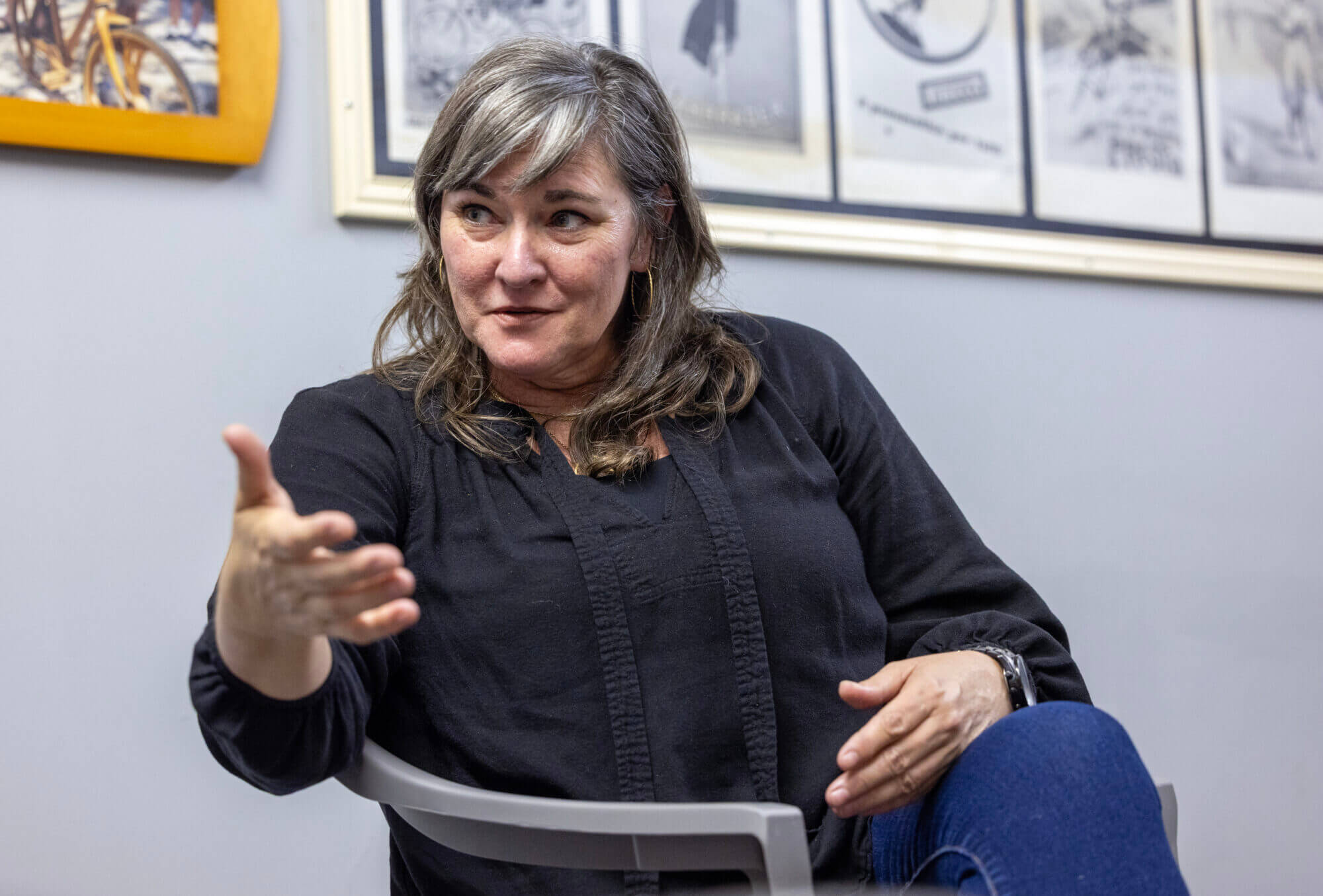
Pine Belt resident Jane Clair Tyner watched her son Asa Henderson struggle with opioid use until he died at 23 years old in 2019. When Mississippi Today told her about the settlement spending of the cities and counties, she said it adds heartache to the grief she continues to carry.
Tyner said she has no interest in receiving settlement checks from the pharmaceutical companies, as the money would be better used to prevent more overdoses. But the spending shows that Fitch’s new message is the one cities and counties have taken to heart.
“It’s just incredibly unjust,” she said. “It makes a mockery of our entire justice system. It makes a mockery of court cases. It makes a mockery of settlements.”
‘The epidemic is marching on’
While U.S. and Mississippi overdose deaths have slightly decreased over the past two years, both the state and national death rates are higher than they were in the late 2010s, when the country’s surgeon general said combating the opioid epidemic was his top public health priority.
Dr. Caleb Alexander, a Johns Hopkins Bloomberg School of Public Health professor and an expert witness in many of the opioid settlement lawsuits, said all the money Mississippi is receiving is a valuable resource that can prevent more deaths.
“The epidemic is marching on, and enormous harms continue to occur in cities and counties, big and small,” he said.
Shortages in the state’s treatment and recovery resources, ones that more local financial support could help address, have likely prolonged the epidemic. A 2023 Journal of the American Medical Association study found that among Mississippians on Medicaid, a federal-state health insurance program for vulnerable people, less than a third of those diagnosed with opioid addiction received effective medication for the disease.
Sixty-eight of Mississippi’s 82 counties didn’t have any recovery residences, also known as sober living homes, according to a 2022 report from the Public Health Institute. The report says the availability of these homes, which the Substance Abuse and Mental Health Services Administration has said is crucial to curbing more overdoses, is among the lowest of any state in the country.
To Tyner, the mother who lost her son to an overdose, these are some of the resource holes that the settlement dollars could help fill.
“We have an opportunity to open more beds, to create more community mental health centers, to make recovery possible,” she said.
The only government that reported spending its money to improve access to opioid use disorder medication or recovery residences was Horn Lake, which donated about $75,000 to a local treatment center in June.
DeSoto County has used all of its settlement money for the construction of a new crisis stabilization unit, and Lamar County plans to do the same with its hundreds of thousands of dollars. But these centers are designed for stabilizing people in crisis or experiencing psychosis, and they don’t provide long-term services for addiction.
Melody Madaris oversees one of these units as the executive director of the community mental health center Communicare in north Mississippi. Centers like hers run both crisis stabilization units and addiction treatment programs, and she said local officials who want to prevent more overdoses should look to fund the treatment services instead.
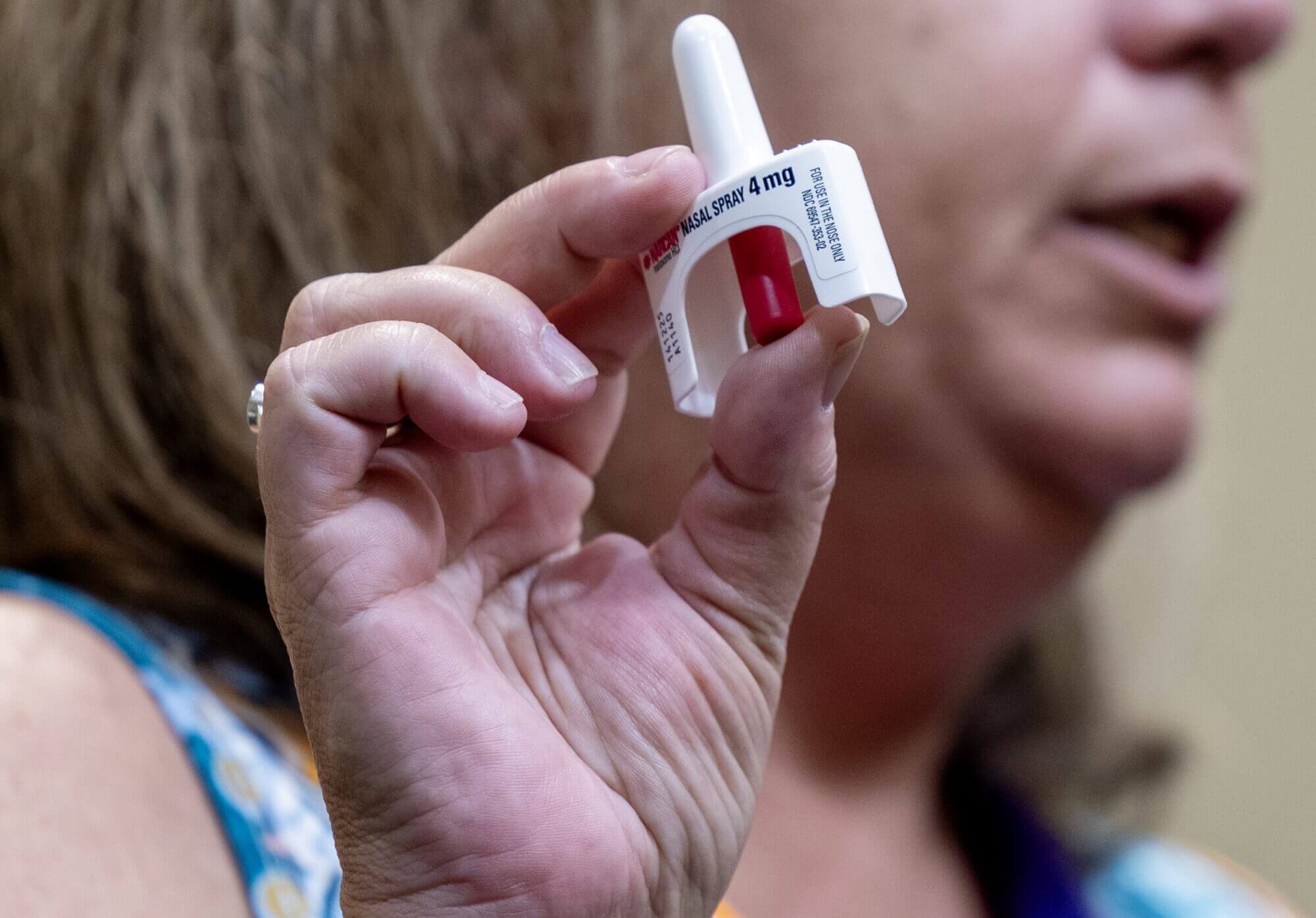
Unlike private rehabilitation centers, addiction treatment programs at community mental health centers serve all regardless of Mississippians ability to pay. Madaris said that makes for difficult financial situations.
“We all operate in the red every year,” she said.
Some of the Mississippi settlement spending that counts as addressing addiction is unlikely to prevent more overdose deaths, according to public health researchers. The city of Starkville is using about $15,000 for its police to teach the Drug Abuse Resistance Education, or DARE, a program that most research indicates isn’t effective at preventing drug use.
The city of Clarksdale’s deputy clerk said the government is spending roughly $36,000 so its police and fire departments can buy more naloxone, the opioid overdose-reversing medication. But Worsham, the Mississippi peer support specialist, said the criminal nature of opioid use makes it unlikely people will call law enforcement to respond to an overdose.
“They’re putting it in the hands of people who are least likely to be able to hand it to the people who need it,” she said.
David Engel, the Copiah County administrator, said he believes the drug court addiction treatment program his government is sending its settlement dollars to is amazing.
But beyond that, he said he and the supervisors are unclear how best to prevent more opioid deaths. And the attorney general’s office messages saying the money can be spent on anything aren’t helpful.
“That’s no guidance whatsoever,” he said.
Repeating history could doom future crisis response
Dr. Rahul Gupta, the former Office of National Drug Control Policy director, said it should be the responsibility of the state government to encourage local governments how best the dollars can be used to stop the public health overdose crisis.
Fitch’s counterparts in states such as North Carolina and Utah have developed instructions for how these dollars can best be used to prevent more overdoses. Fitch did not answer a question about whether she would consider making a guide like those for the local governments.
“It’s not fair to blame them (localities) for utilizing money in different ways if we’re not providing that overarching guidance to them,” Gupta said. He added that public health bodies such as Johns Hopkins University’s Bloomberg School of Public Health have created helpful national guides for opioid settlement spending.
Only one of the 147 governments, the city of Hattiesburg, indicated that it would seek input from residents who’ve been impacted by addiction to guide how it should use its settlement funds. It reported receiving roughly $54,000 in May.
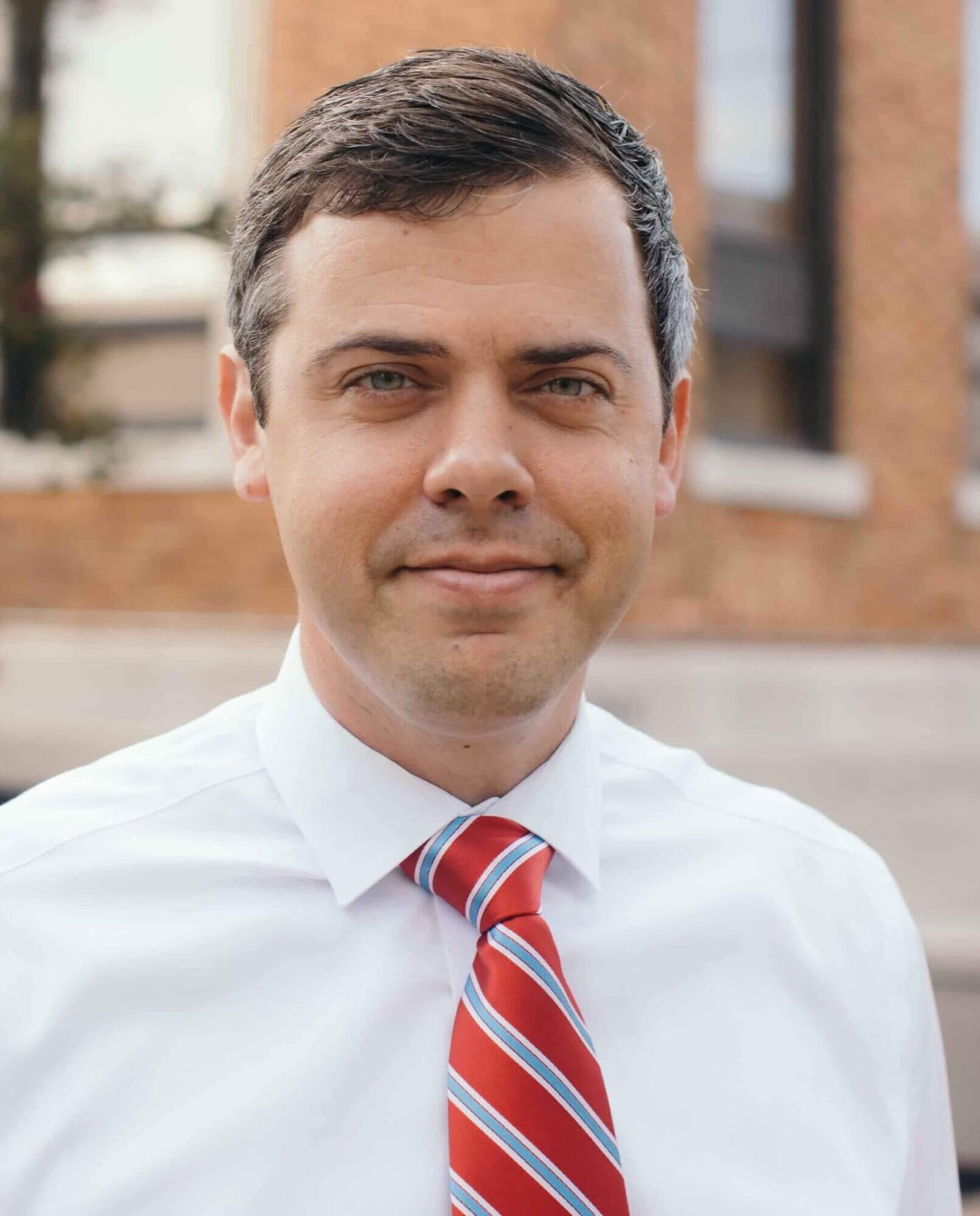
Mayor Toby Barker said in June he wanted to seek the advice of families who’ve lost loved ones, addiction treatment providers and law enforcement officers of how to best spend its dollars.
“I don’t want us to do something to do something,” he said. “I want to see Hattiesburg make a focused investment on where it can do some good.”
Feinberg, the West Virginia University professor, said community input is the best way to make sure these dollars reduce the overdose death rate. She said other local elected officials may want to look to Hattiesburg as an example of what’s possible, as she thinks it could have the best luck at saving lives.
It’s important that these dollars be spent to prevent more overdose deaths not just for this crisis but also for future ones, Gupta said. The opioid lawsuits were modeled after tobacco cases in the 1990s, and a lot of that money didn’t end up addressing the public health emergency at hand.
If that happens again, Gupta said, judges could be hesitant to demand response money for the next public health emergency created by corporations.
“It’s going to be very difficult to argue why these are required to abate that crisis,” he said.
- Sen. Wicker writes to Kristi Noem opposing feared ‘ICE warehouse’ in Byhalia - February 4, 2026
- House votes to legalize online sports betting and divert $600M to pension system - February 4, 2026
- Lawmakers push bills to heighten transparency for rural health federal funding - February 4, 2026